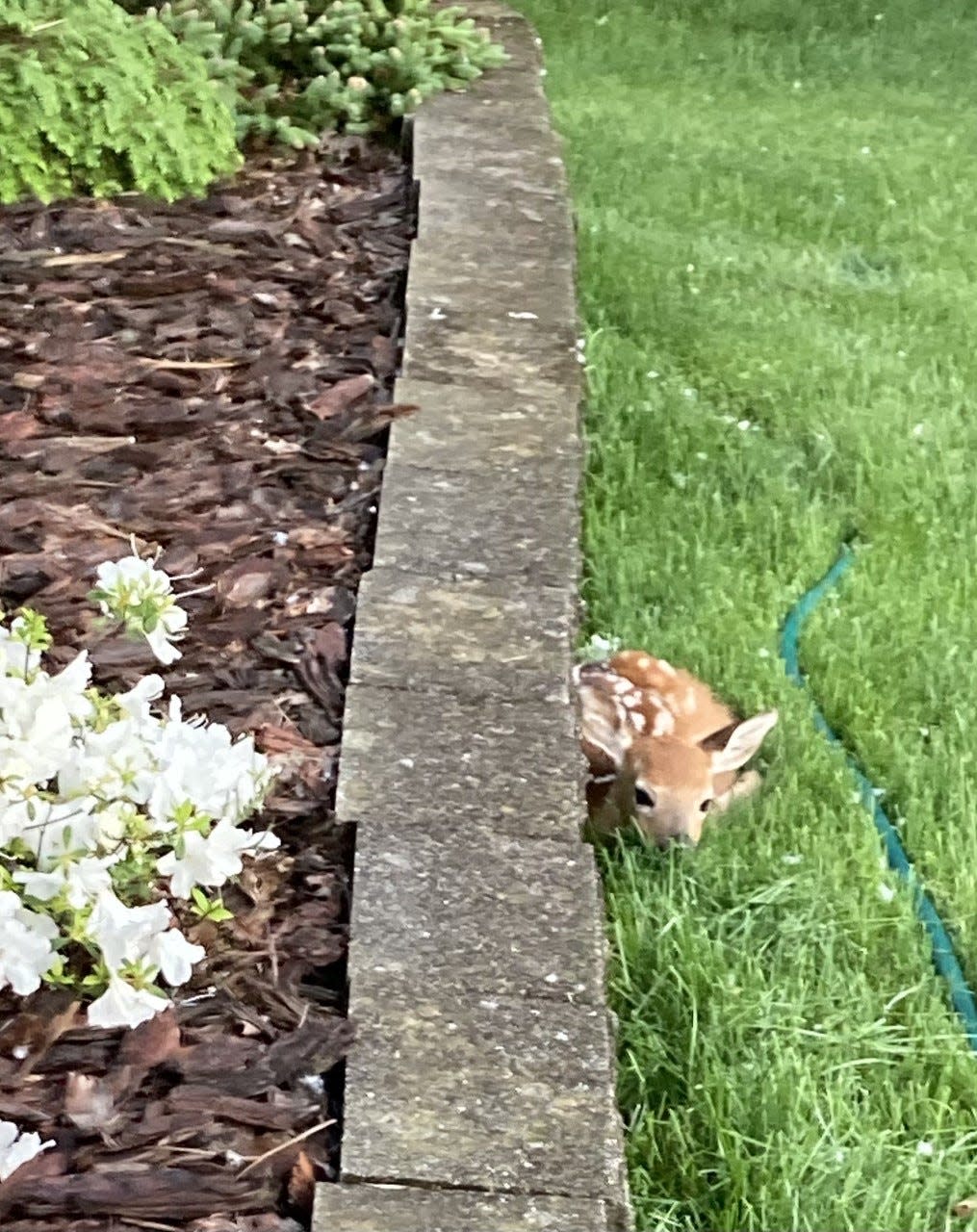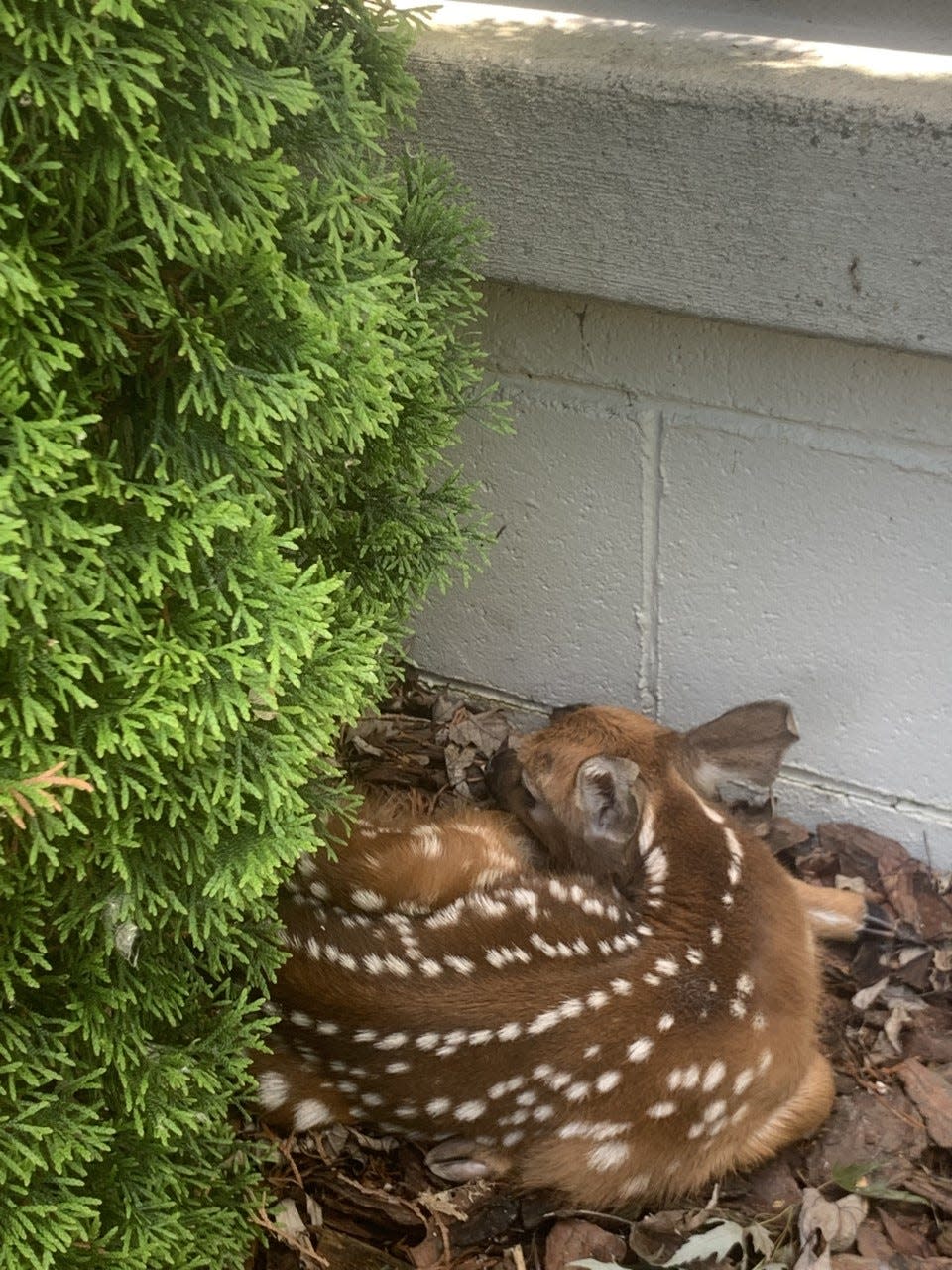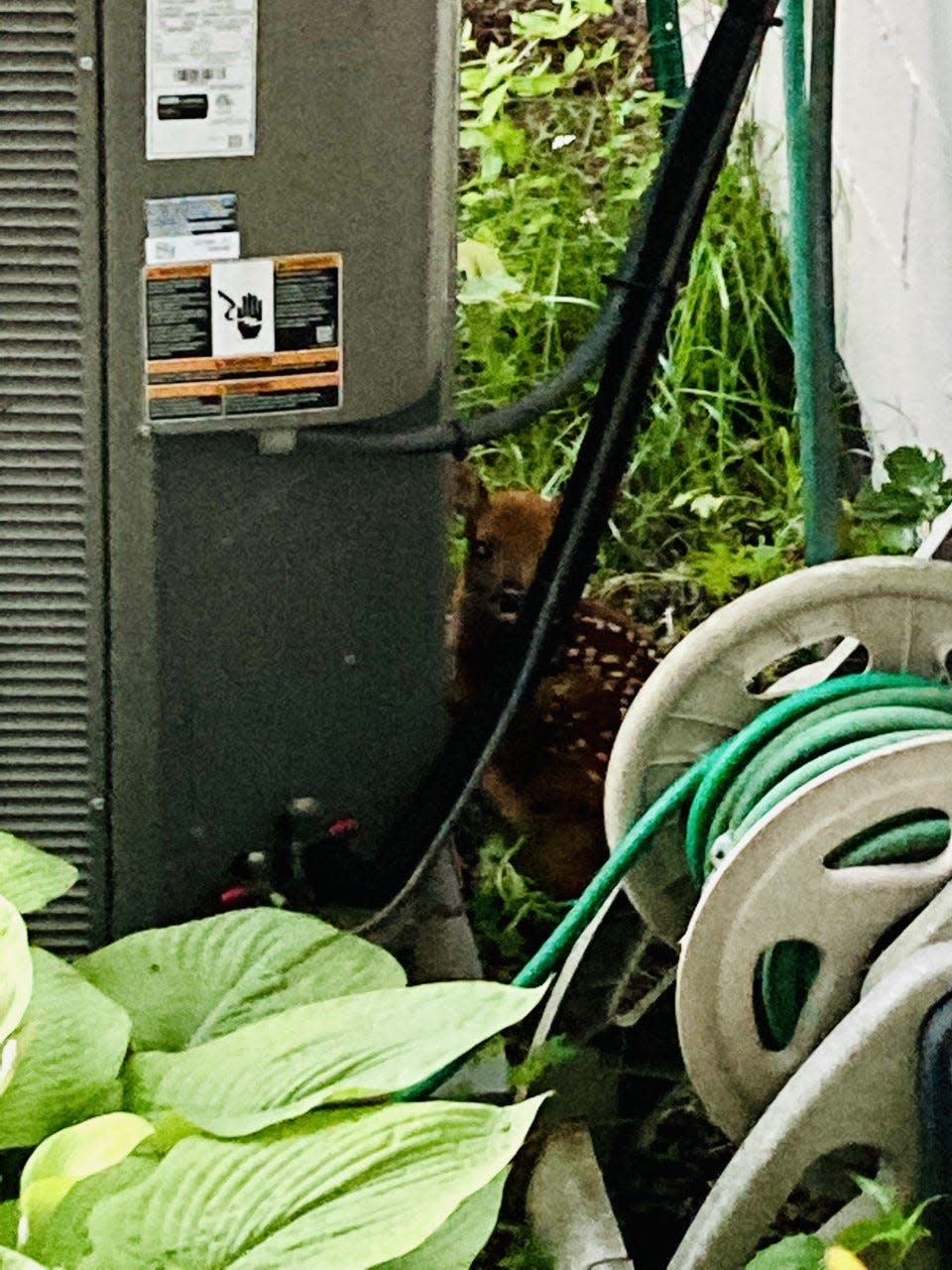Theodore Decker: Fawning, and then worrying, over a vulnerable backyard visitor

The weather was hot enough for central air on Monday and Tuesday, and around the neighborhood you could hear the conditioners rattling to life for the start of another cooling season.
Ours remains quiet, but not because it is broken.
We just don't want to startle the baby deer that has curled up in the tight space between the air conditioner and the foundation of our house.
We first spotted the fawn early Sunday, which wasn't hard to do because it was camped out on the grass in our front yard, against a retaining block wall.
She eventually relocated to her current position, where as far as I know she has stayed since the pre-dawn hours on Monday.
Of course, I don't know that she's a "she." She might well be a "he." Either way, I feel like the family knows her too well by now to call her an "it."
We're too invested.
And we've gone from fawning over her to worrying ourselves sick.
It started as a novelty. We snapped a few pictures from a safe distance, but otherwise left her alone. She eventually moved off the grass and into a better hiding spot under our shrubs, pressed against our front porch.

We kept the dog away and counted the hours until nightfall.
Then she started bleating.
My wife thought it was a cat at first. My son, whose bedroom is above the porch, realized it was our unexpected guest.
She bleated intermittently until after 12 a.m. Monday, when it sounded as though she left our yard and headed toward a nearby court.
That's a good thing, I thought before heading off for bed. Behind that court is a ribbon of woods that borders a golf course. The deer in our neighborhood always seem to come from that direction.
I awoke Monday morning feeling confident that she was gone, mama and baby reunited in a happy ending. A check of the front shrubs seemed to prove me right.

Then we discovered that she had relocated only as far as the large-leafed hosta in our back yard. From there she took a few more steps to the central air unit, where as far as we know, she's been ever since.
She also fell silent.
I spent Memorial Day poring over deer research.
More: Barbecue, burgers, brews and more among your options to eat, drink and be merry
To keep their offspring safe, does will leave fawns unattended for hours at a time. They are safer by themselves and are conditioned to remain still even when danger comes within a few feet, as it did Monday morning in the form of the Spectrum repairman who did work at our house.
She didn't budge as he banged away beside her for more than 30 minutes, and she stayed put for the rest of Monday. When night fell, she stayed quiet. We were concerned by then, but still hopeful.
And there she was, in the same spot, on Tuesday morning.
On Tuesday, I left messages with the Ohio Wildlife Center. My wife called the Ohio Department of Natural Resources. She ran the scenario by a staffer there, who told us how to discern a fawn in distress from a healthy fawn in repose. When a volunteer from the wildlife center called back, the message was the same.
Our fawn seems to fall squarely in the latter category.
"Human intervention is always a wild animal’s LAST hope for survival, NEVER its best hope," says the ODNR on its website.
Animals: Four injured manatees flown to Columbus Zoo to help out SeaWorld rescue program
But it was so hot. I knew it was a myth that mothers would reject their fawns solely based on human contact, so I made the bleeding-heart decision to bring her a bowl of water.
She jumped up as I leaned in to place it near her, so I left it and backed off slowly. I later saw her standing above the bowl, and after that, snuggled up beside it.

And that's where we're at, as of this writing.
I realize that, were the worst to happen, this deer is not the last dodo.
According to the National Parks Service, deer had nearly disappeared from Ohio by the early 1900s, due to deforestation and unrestricted hunting.
Study: White-tailed deer in Ohio 'frequently infected' with novel coronavirus
Beginning in the 1930s, the population began to rebound due to a combination of factors: hunting controls, a restocking effort in southern Ohio, immigration of deer from neighboring states, and improving habitat.
Ohio’s deer population exploded from only 17,000 animals in 1965 to 750,000 at the herd's peak in the early 2000s.
Ohio's deer are doing just fine overall, even if this fawn isn't.
I'm also cognizant of the folly of imparting human emotions on a non-human.
But she must know fear. Does she know loneliness? Does she understand her plight?
Or is the real issue this: Do I not understand that there is no plight?
"It is common for female deer in urban areas to place fawns around homes, backyards, or flower beds," the ODNR website said. "The mother placed it there because she felt it would be safe (often intentionally near humans)."
For this little one's sake, I hope that's the case.
It's ridiculous, this growing panic I'm feeling.
I drive by the roadside carcasses of her brethren with little more thought than, "Man, that stinks." Yet here I am, fretting relentlessly about this fawn's well-being when I have far more important matters in this life to fret about.
But looking into those brown Bambi eyes, seeing that sun-dappled coat, watching her circled up on the ground, sleeping like my pampered dog and cats, I think — I hope — that any one of us would understand how I'm feeling.
tdecker@dispatch.com
@Theodore_Decker
This article originally appeared on The Columbus Dispatch: Backyard wildlife: An unexpected visit from white-tailed deer fawn
